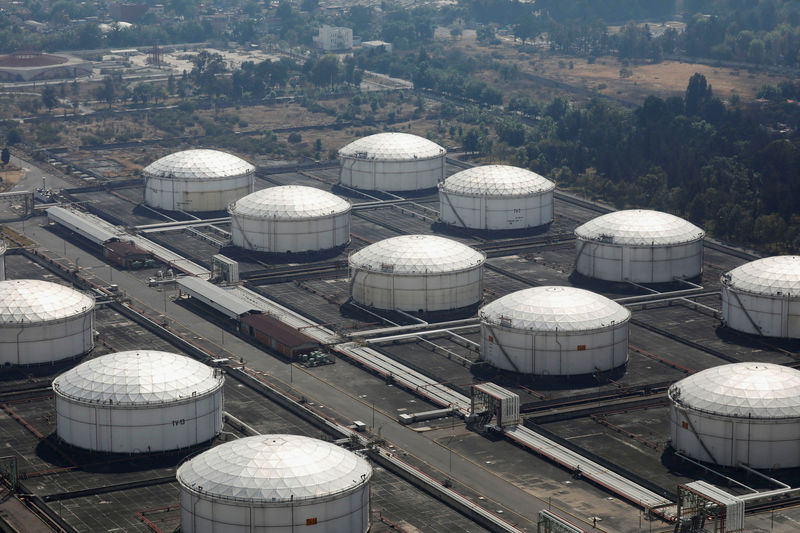MEXICO CITY (Reuters) - Mexico will maintain a strategy of hedging its oil output against lower prices, the government said in its 2020 budget proposal unveiled on Sunday, adding that state oil company Pemex would also continue a similar but separate hedging program.
The Mexican Finance Ministry's roughly $1 billion annual oil hedge is considered the world's largest oil trade. Last week, Reuters reported that Mexico had made the first moves to launch the program by asking banks for quotes.
The budget document said the government had "fiscal shock absorbers" to protect against volatility that could affect public finances, including "a strategy of oil hedges contracted both by Pemex and the federal government to cover oil income against reductions compared to the price" estimated in the budget.
The Pemex hedge is much smaller than the one carried out by the Finance Ministry.
While it is not yet known what price the government and Wall Street banks have agreed on for Mexico's 2020 hedge, the budget sets a target price of $49 per barrel for its crude export revenue estimates.
The budget blueprint estimates next year's crude exports at 1.13 million bpd, or nearly 2 percent higher than 2019 levels.
The Finance Ministry based its 2019 hedge calculations on $55 per barrel for Mexican crude.

In a sign of the type of volatility that worries the government, Finance Minister Arturo Herrera said he had been planning until last month to use the same number, but lowered the estimate to reflect the U.S.-China trade war, slower global growth and new rules that limit the use of high sulfur fuel produced by Mexico.